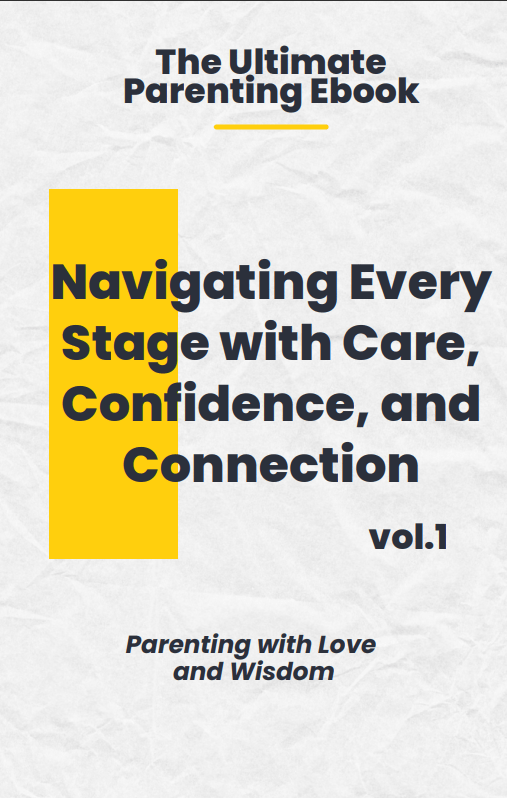Mother abandonment leaves lasting scars. Discover its impact on brain development and emotional health, and learn how to support and heal.

Have you ever felt an overwhelming sense of loneliness, despite being surrounded by people? Do you struggle with low self-esteem or find it hard to trust others?
Perhaps you experience anxiety or depression without understanding why. If these feelings resonate with you, you might be dealing with the effects of mother abandonment. Mother abandonment, whether through physical absence or emotional neglect, leaves deep scars that can affect every aspect of life.
This blog delves into what mother abandonment means, its impact on the young brain, the long-term effects in adulthood, and practical ways to cope and heal. Our goal is to provide a comprehensive understanding, grounded in research and enriched with practical insights, to help you navigate this complex issue.
In This Blog
ToggleWhat Does Mother Abandonment Mean?

Definition and Characteristics
Mother abandonment refers to a situation where a mother is physically or emotionally unavailable to her child. This can occur for various reasons, including death, divorce, mental illness, addiction, or societal pressures. The abandonment can be complete, where the mother is entirely absent, or partial, where she is physically present but emotionally detached.
Causes of Mother Abandonment
The reasons behind mother abandonment are multifaceted. Financial hardships, mental health issues, and lack of support systems often play significant roles. Societal expectations and stigma surrounding single motherhood can exacerbate the problem, leading to situations where mothers feel overwhelmed and unable to cope. For example, a single mother working multiple jobs may not have the time or emotional energy to engage with her children, leading to feelings of abandonment.
Impact on Attachment
The disruption of secure attachment formation is one of the most significant effects of mother abandonment. Secure attachment is crucial for a child’s emotional and social development, providing a foundation for healthy relationships and self-esteem. When this bond is broken, children may struggle with trust issues and emotional regulation throughout their lives. Consider the case of a child who is left in the care of different relatives or foster homes, leading to a constant state of uncertainty and insecurity.
Psychological Effects
Children experiencing mother abandonment often face emotional trauma, resulting in low self-esteem, anxiety, and depression. These psychological effects can persist into adulthood, affecting their ability to form healthy relationships and achieve personal and professional success. An example is a teenager who, abandoned by their mother, may act out in school and struggle with forming friendships due to deep-seated trust issues.
Long-term Consequences
The long-term consequences of mother abandonment are profound. Adults who experience abandonment as children often struggle with trust and intimacy issues, leading to challenges in their personal and professional lives. They may also be at a higher risk for mental health disorders and substance abuse. For instance, an adult who was abandoned as a child may find it difficult to maintain stable relationships and may turn to alcohol or drugs as a coping mechanism.
You may also be interested in : Discipline and ADHD: 6 Practical Solutions for Parents in 2024
What Mother Abandonment Does to a Very Young Brain?

Impact on Brain Development
The early years of a child’s life are crucial for brain development. During this period, neural pathways are formed, and the brain’s structure is shaped by experiences. Mother abandonment can disrupt this process, leading to delays in cognitive development and difficulties in emotional regulation. Research shows that children who experience significant stress in early childhood, such as abandonment, have altered brain structures related to fear and anxiety.
Difficulty Forming Strong Bonds
Children who experience mother abandonment often have trouble forming strong, secure bonds with others. This difficulty can manifest in various ways, from challenges in building friendships to struggles with intimacy in romantic relationships. For example, a young child who was abandoned might cling to teachers or caregivers, seeking the stability they lack at home.
Emotional Management
Managing emotions is a learned skill, typically developed through secure attachment and consistent caregiving. When a mother is absent, children may struggle with increased stress and difficulty managing their emotions, leading to heightened anxiety and behavioral issues. A classic case is a child who acts out in school or exhibits extreme reactions to minor frustrations due to an inability to regulate emotions.
Learning and Development
Mother abandonment can also impact a child’s learning and development. Delays in acquiring skills such as language and problem-solving are common, as these children often lack the stable, nurturing environment necessary for optimal growth. For instance, a child who does not receive consistent emotional support may fall behind in school, struggling with both academic and social aspects.
Emotional Consequences
The emotional consequences of mother abandonment are far-reaching. Children may experience higher levels of sadness and anxiety, affecting their ability to engage fully in school and social activities. These emotional challenges can persist into adulthood, influencing their overall quality of life. A typical example is a young adult who faces chronic depression and anxiety, making it difficult to hold a job or maintain relationships.
Brain Function Alterations
Mother abandonment can lead to changes in how the brain processes emotions and social cues. These alterations can result in difficulties with empathy, social interactions, and emotional regulation, further complicating the child’s ability to form healthy relationships. For instance, an abandoned child might become overly sensitive to rejection or criticism, reacting defensively in social situations.
You may also be interested in : Discipline ADHD: 10 Signs to Spot and How to Address Them
What Are the Effects of Mother Abandonment in Adulthood?

Intimate Relationships
Adults who experience mother abandonment often struggle with intimate relationships. Trust issues and fear of abandonment can make it challenging to form and maintain close connections. These individuals may find themselves pushing people away to protect themselves from potential pain. For example, someone who was abandoned by their mother might have a pattern of ending relationships prematurely to avoid being hurt again.
Trust and Attachment Issues
Trust and attachment issues are common among adults who face mother abandonment. These challenges can affect their relationships with family members, friends, and romantic partners, leading to a sense of isolation and loneliness. An example is an adult who, due to early abandonment, may find it difficult to trust their partner, leading to frequent conflicts and misunderstandings.
Mental Health Risks
The mental health risks associated with mother abandonment are significant. Adults who experience abandonment as children are at a higher risk for depression, anxiety, and other mental health disorders. They may also engage in self-destructive behaviors as a way to cope with unresolved emotional pain. For instance, someone who was abandoned might develop a dependency on substances to numb their feelings of loss and rejection.
Parenting Challenges
Parenting can be particularly challenging for adults who experienced mother abandonment. They may struggle with providing nurturing care to their own children, as they lack a model of consistent, loving parenting. This can perpetuate a cycle of abandonment and emotional neglect. An example is a parent who, due to their own abandonment issues, finds it difficult to connect emotionally with their child, leading to a strained parent-child relationship.
Self-esteem and Identity
Self-esteem and identity are often compromised in adults who experienced mother abandonment. These individuals may struggle with feelings of inadequacy and self-doubt, affecting their ability to pursue their goals and aspirations. For example, an adult who was abandoned as a child may have a persistent fear of failure, hindering their career progression and personal development.
Substance Abuse
Substance abuse is a common coping mechanism for those who experienced mother abandonment. Drugs and alcohol may provide temporary relief from emotional pain, but they ultimately exacerbate the individual’s problems, leading to a downward spiral of addiction and despair. An example is an adult who, in an attempt to escape the pain of their past, turns to alcohol, only to find themselves trapped in a cycle of dependency and isolation.
You may also be interested in : Parenting Discipline: How to Enforce Rules Without Arguments-10 Easy Tips
What Are the Practical Ways to Heal with Mother Abandonment?

Therapeutic Interventions
Therapy and counseling are essential for individuals coping with mother abandonment. Cognitive-behavioral therapy (CBT) and trauma-focused therapy can help individuals process their emotions, develop healthy coping mechanisms, and build resilience. For example, a person struggling with abandonment issues might benefit from regular therapy sessions that help them understand and manage their feelings.
Support Networks
Building a strong support network is crucial for healing from mother abandonment. Support from family, friends, and community groups is essential for emotional and practical recovery. Community programs and mentorship can also play a significant role in providing stability and guidance. For instance, joining a support group for individuals with similar experiences can provide a sense of belonging and understanding.
Self-care Strategies
Engaging in self-care activities is vital for emotional and mental well-being. Mindfulness practices, such as meditation and yoga, can help individuals manage stress and develop emotional regulation skills. Other self-care strategies include journaling, exercise, and pursuing hobbies that bring joy and fulfillment. For example, practicing yoga regularly can help an individual reconnect with their body and mind, promoting overall well-being.
Expressive Activities
Expressive activities, such as writing, drawing, and other creative outlets, can be powerful tools for emotional expression and healing. These activities allow individuals to process their emotions in a safe and constructive way, providing a sense of relief and catharsis. An example is someone who uses painting as a way to express and release their emotions related to abandonment.
Setting Boundaries
Learning to set healthy boundaries is essential for those recovering from mother abandonment. Setting boundaries with toxic individuals and environments can protect one’s emotional well-being and foster healthier relationships. For instance, an individual might need to limit contact with a toxic family member to maintain their mental health.
Forgiveness and Letting Go
Forgiveness and letting go of negative feelings toward the mother can be a crucial step in the healing process. This does not mean condoning harmful behavior but rather freeing oneself from the burden of anger and resentment. For example, through therapy, someone might work on forgiving their mother not for her sake but to find peace and move forward.
Positive Environment
Surrounding oneself with positive people and experiences is vital for emotional healing. A supportive and nurturing environment can provide the stability and encouragement necessary for personal growth and recovery. For instance, participating in community activities or volunteering can create a sense of purpose and connection.
Conclusion
Remember, the effects of mother abandonment are profound, but with the right support and resources, healing and resilience are within reach. By understanding and addressing these challenges, we can create a brighter future for ourselves and our children.
If you or someone you know is struggling with the effects of mother abandonment, seek help. Reach out to a therapist, join a support group, and build a strong network of supportive individuals. Healing is achievable, and you don’t have to navigate this path on your own.
We value your thoughts and experiences. Please share your comments and stories below.
You may also be interested in : 20 Tips for Parenting a Strong-Willed Child
FAQs
1. What is mother abandonment?
Mother abandonment occurs when a mother is physically or emotionally unavailable to her child, due to reasons like death, divorce, mental illness, or addiction.
2. What are the common causes of mother abandonment?
Causes include financial hardships, mental health issues, societal pressures, and lack of support systems, which can overwhelm mothers and lead to abandonment.
3. How does mother abandonment affect a child’s brain development?
It disrupts neural pathways and emotional regulation, leading to cognitive delays and difficulties in managing emotions.
4. What are the emotional effects of mother abandonment on children?
Children often face low self-esteem, anxiety, and depression, which can persist into adulthood.
5. How does mother abandonment impact a child’s ability to form relationships?
It can cause trust issues and difficulty forming secure attachments, affecting friendships and romantic relationships.
6. What long-term psychological effects can result from mother abandonment?
Long-term effects include chronic anxiety, depression, trust issues, and a higher risk for substance abuse.
7. Can mother abandonment affect academic performance?
Yes, children may struggle academically due to emotional distress and a lack of stable, nurturing support.
8. How does mother abandonment influence a child’s social skills?
It can impair social skills, making it difficult for children to interact confidently with peers and form healthy relationships.
9. What are the signs of mother abandonment in children?
Signs include anxiety, depression, behavioral issues, difficulty forming relationships, and academic challenges.
10. How can therapy help children cope with mother abandonment?
Therapy provides a safe space to process emotions, develop healthy coping mechanisms, and build resilience.
11. What role do support networks play in healing from mother abandonment?
Support from family, friends, and community groups is essential for emotional and practical recovery.
12. How can expressive activities help children deal with mother abandonment?
Activities like writing and drawing allow children to process and express their emotions safely and constructively.
13. What are some self-care strategies for children affected by mother abandonment?
Mindfulness practices, exercise, journaling, and engaging in enjoyable activities can help manage stress and emotions.
14. Can mother abandonment lead to substance abuse in adulthood?
Yes, adults may turn to substances as a coping mechanism for unresolved emotional pain from abandonment.
15. How does mother abandonment affect self-esteem and identity?
It often leads to feelings of inadequacy and self-doubt, impacting personal and professional growth.
16. What are the parenting challenges for adults who experienced mother abandonment?
They may struggle with providing nurturing care to their own children, perpetuating a cycle of emotional neglect.
17. How important is forgiveness in healing from mother abandonment?
Forgiveness can free individuals from anger and resentment, aiding in emotional healing and moving forward.
18. What are the practical steps to set boundaries for those affected by mother abandonment?
Setting boundaries with toxic individuals and environments is crucial to protect emotional well-being.
19. How can a positive environment aid in recovering from mother abandonment?
A supportive and nurturing environment provides the stability and encouragement necessary for personal growth.
20. What are the societal implications of mother abandonment?
Addressing mother abandonment requires societal support, awareness, and resources to support single mothers and families in crisis.




